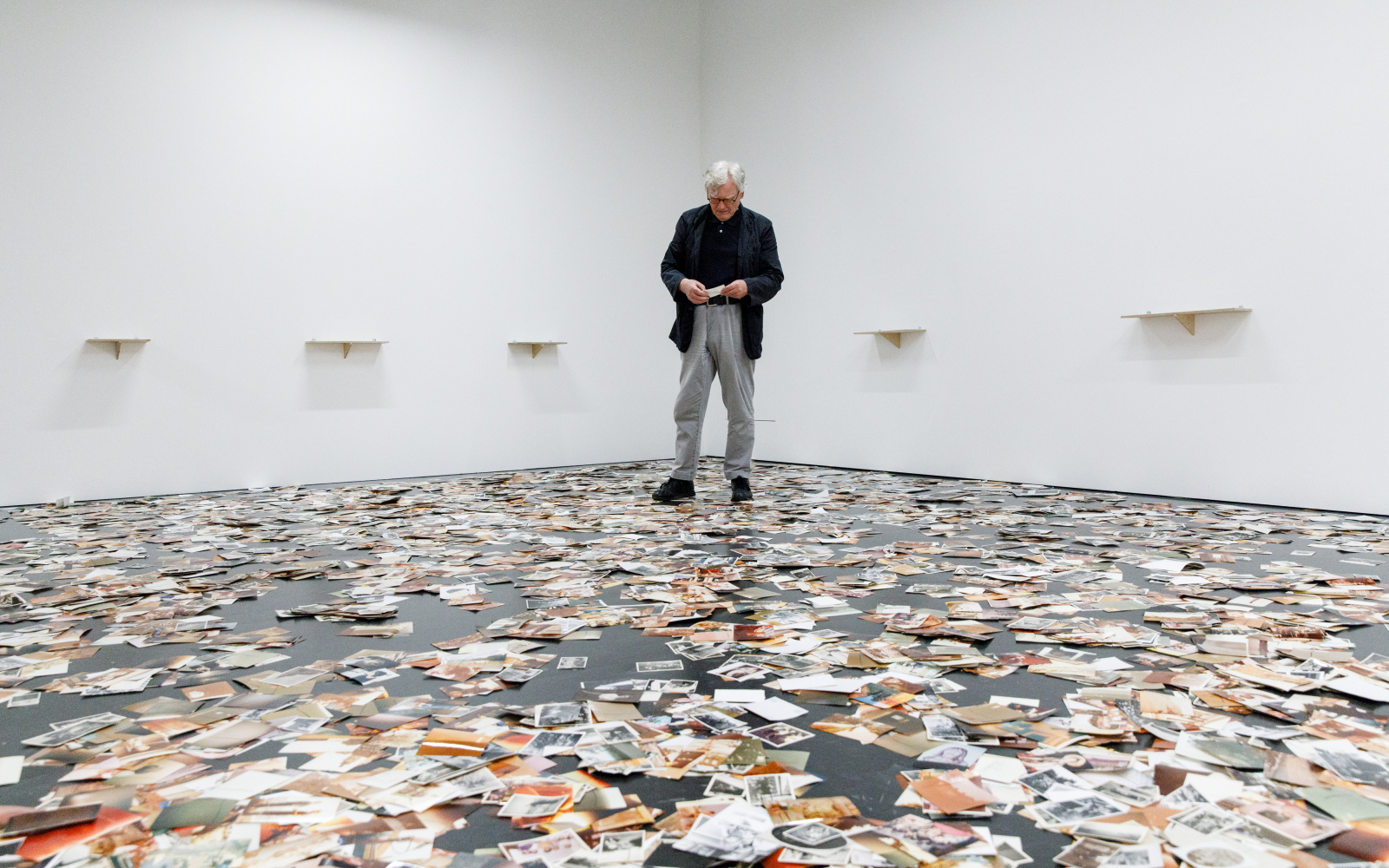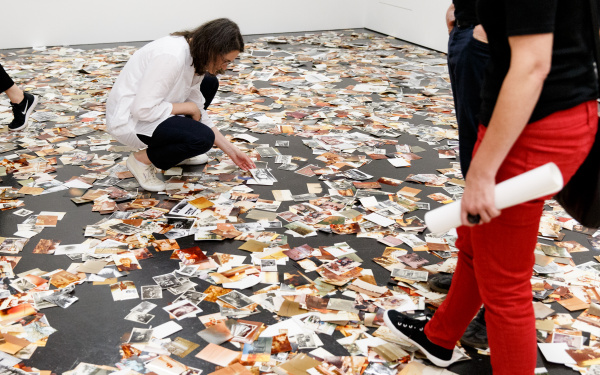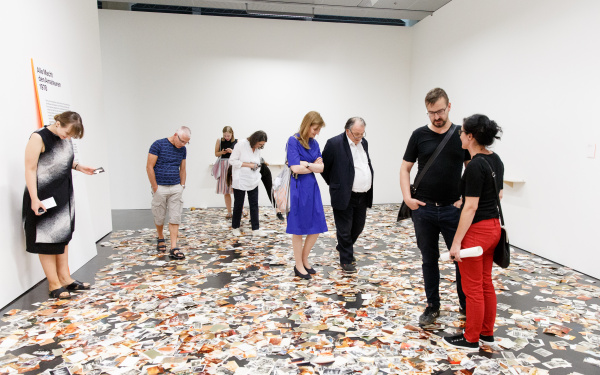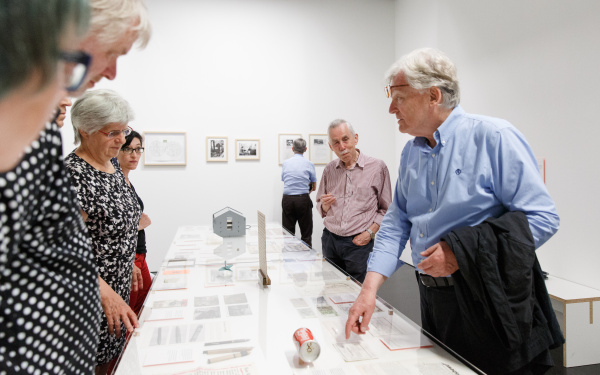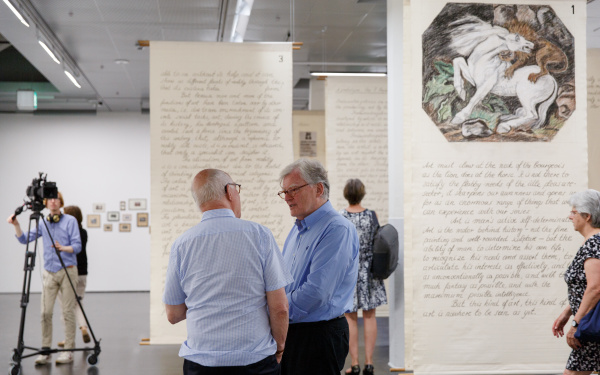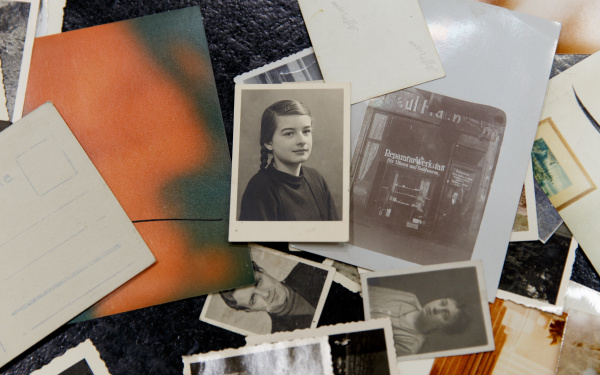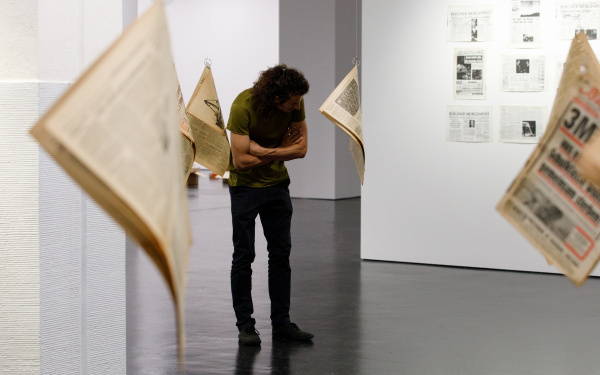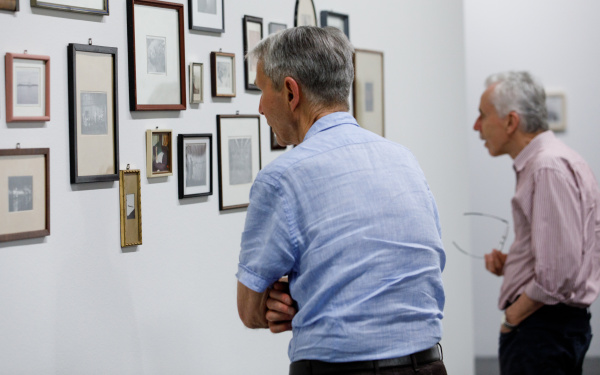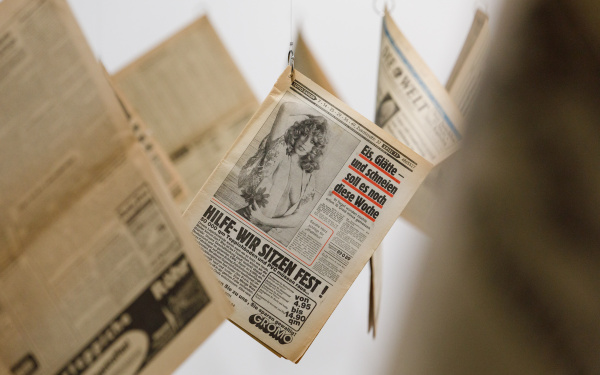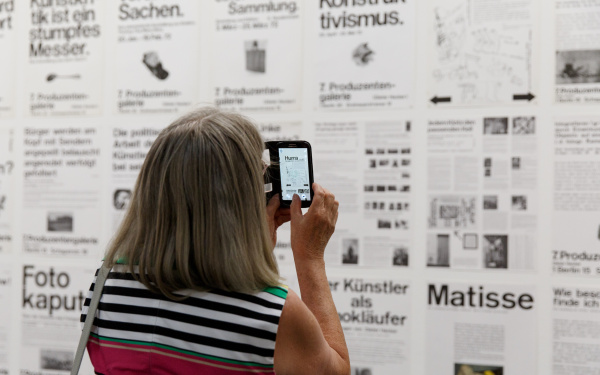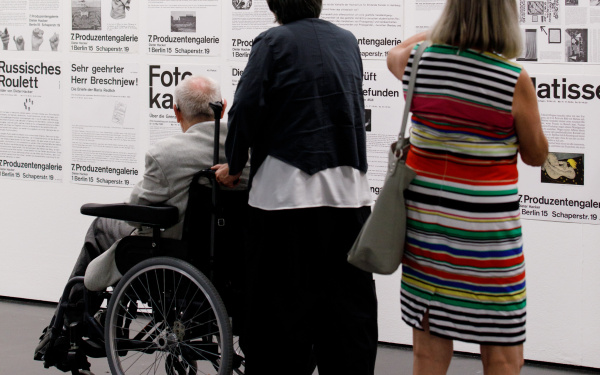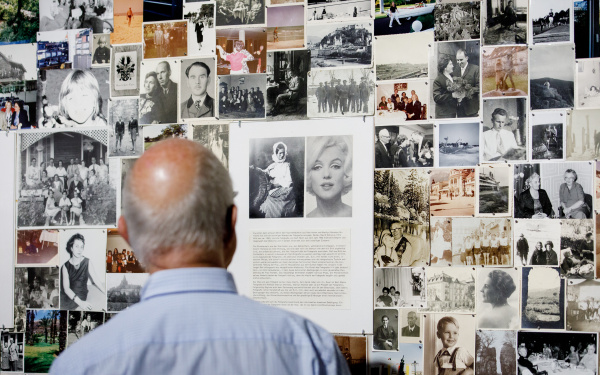- Exhibition
Dieter Hacker. All Power to the Amateurs
1971–1984
Sat, June 09 – Sun, September 16, 2018
- Location
- Atrium 1+2, 1st floor
The availability of smartphones and social media platforms radically changed the world of images in the 2000s. The so-called »user generated content« has changed the public sphere of political and social action, as well as social relations and art. With the exhibition »Dieter Hacker. All Power to the Amateurs. 1971-1984«, the ZKM expands the view of this phenomenon by adding a historical perspective.
In 1971 the artist Dieter Hacker founded a producer gallery in Berlin where he presented – through exhibitions and publications – the possibility of a new »folk art«: the art of amateurs.
»Everybody Could be an Artist« was the title of the first exhibition by Dieter Hacker conceived for the producer gallery he had founded in April 1971 in Berlin-Wilmersdorf. The critical paraphrase of Josef Beuys' dictum »everyone is an artist« indicated the program for the next 13 years: The »7. Produzentengalerie«, which was at once a studio, a living and exhibition space, as well as a publishing house, served as a »medium« independent of the market and the state, both to analyze the working conditions of visual artists and to clarify the social function of art, as well as to present possible alternatives in form of a new »folk art«.
With the exhibition »Dieter Hacker. All Power to the Amateurs. 1971–1984«, the ZKM presents for the first time a selection of installations, publications and films that Dieter Hacker conceived – alone or in collaboration with Andreas Seltzer – for the 7. Produzentengalerie. They show exclusively photographs, texts, drawings and objects by amateurs – from the newspaper carrier Ms. B. to the President of the United States Ronald Reagan.
The »folk art« presented by Hacker did not stand for the longing for a pre-industrial tradition or for hobbies intended for relaxation from everyday work – quite the opposite. Hacker saw a »general creativity« as a form of »imaginative resistance« against the status quo and as a precondition for the design of possible worlds.
Dieter Hacker, 1972
»Folk art is not art made by the people. Folk art is not the painting, the carving, the kneading of the amateur. Folk art is the art of articulating one's own interests, as effective as possible and therefore as unconventional, imaginative and intelligent as possible.«
According to Hacker, folk art is associated with the great works of art by its resistance to current norms. What distinguishes it from professional art is that it is created without the intention of creating aesthetic entities: »Instead, the aesthetic means are used as a means to achieve a stated goal.«
From the beginning Hacker pointed out the importance of the strategies for the publication of thoughts or products for the development of this general creativity: »Everyone has his or her own opinion. But as long as he or her keeps it to himself, it has no consequences.« Only through publishing, thereby examining and further developing his or her point of view, individuals turn into »sovereign social beings«.
In view of current practices such as Instagram, Twitter and Snapchat as well as the »maker culture«, the theses formulated by Hacker are once again up for discussion. The utopia of publishing all photos and thoughts at any time has been fulfilled. What consequences does this have for society and democracy? How has the economization of all areas of life changed the socio-political effect of the hoped-for »general creativity«? What impact does the amateur culture of social media have on our historical concept of culture?
Current experiences change the view of the amateur culture of the 1970s; the historical perspective allows a differentiated analysis of the phenomena of the present.
Imprint
- Curator
